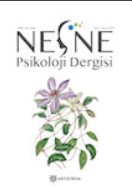Çocukların Gözünden Ayıp Kavramsallaştırmasının ve İlgili Ahlaki Duyguların Sosyal Alan Kuramı Çerçevesinde İncelenmesi
The Examinaton of “Ayip” Conceptualization From Children’s Perspective and Related Moral Emotions Within The Frame of Social Domain Theory
Author(s): Canan Çelikadam, Sercan Balım, Büşra Aktaş, Bahar Aykaç, Mehmet Karasu, Sevim CesurSubject(s): Ethics / Practical Philosophy, Neuropsychology, Behaviorism, Social Theory
Published by: Sanat ve Dil Araştırmaları Enstitüsü
Keywords: “ayıp”; morality; Social Domain Theory; moral domain; conventional moral emotions;
Summary/Abstract: The aim of this study is to exploratively examine of how the concept of “ayıp”, which is frequently used in different contexts in Turkish but has not been sufficiently studied in pscyhology literature, is conceptualized in childhood. For this purpose, it has been tried to reveal that in which social domain the concept of “ayıp” is defined within the framework of Turiel’s Social Domain Theory and which emotions it is related to. The sample consists of 125 children, 63 girls and 62 boys, the ages between 7 and 15 (M= 10.12, SD= 1.55) living in different regions of Turkey. According to the results of the open-ended questions the children evaluate the concept of “ayıp” in both moral and conventional domains, and they express these evaluations mostly through harm/ avoidance of harm, unvirtuous behaviors, violation of social rules, sexual violations and nudity. The situations and behaviours that are considered as “ayıp” are accompanied by more anger and shame in the moral domain, and more disgust in the conventional domain. When the results are evaluated as a whole, it is seen that “ayıp” for children works like unwritten rules and serves to maintain interpersonal relations and social order and is closely related to emotions such as anger, shame, guilt and disgust.
Journal: Nesne-Psikoloji Dergisi
- Issue Year: 11/2023
- Issue No: 27
- Page Range: 117-138
- Page Count: 22
- Language: Turkish

